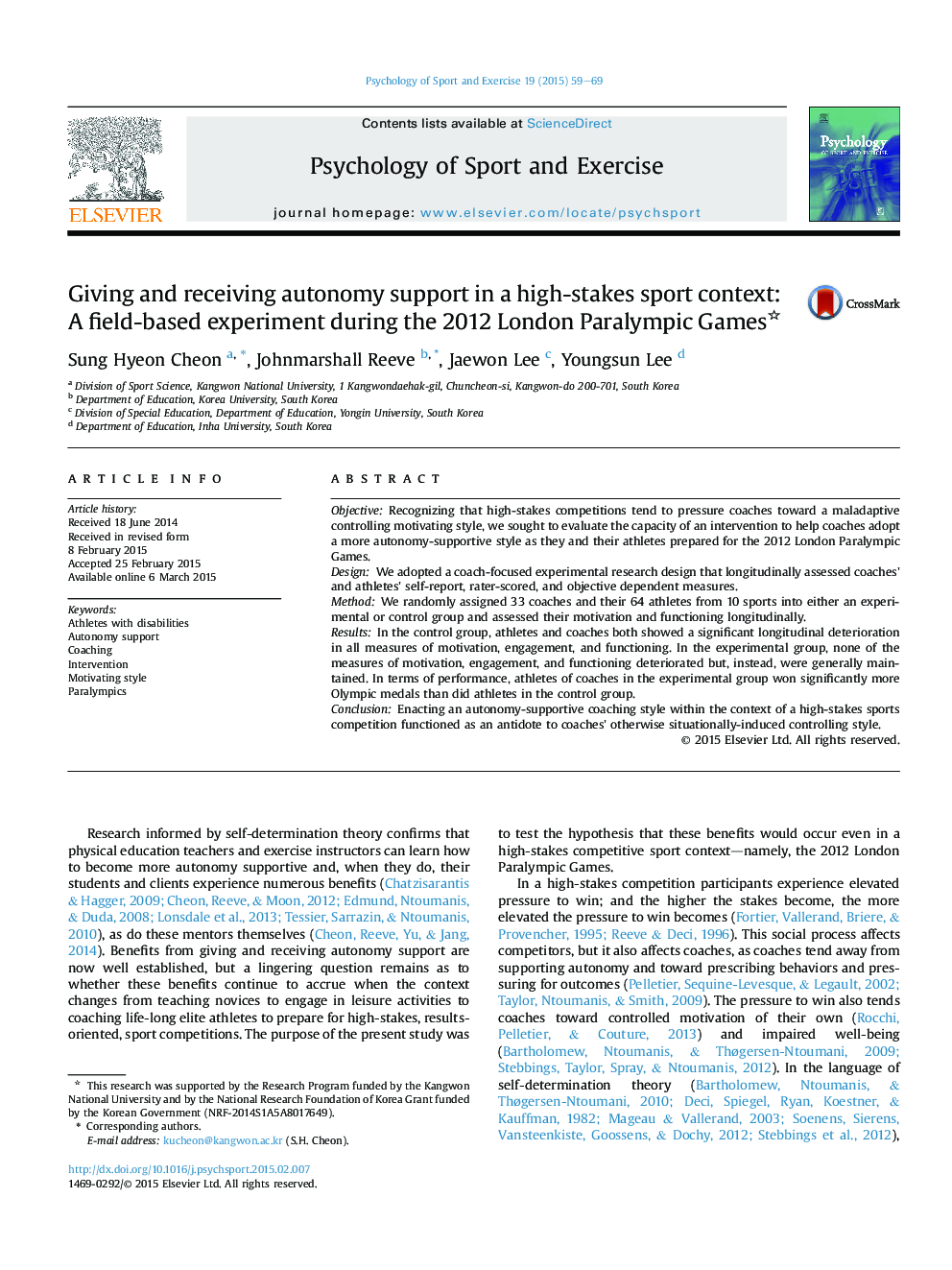| Article ID | Journal | Published Year | Pages | File Type |
|---|---|---|---|---|
| 894272 | Psychology of Sport and Exercise | 2015 | 11 Pages |
•Paralympic coaches randomly assigned to an autonomy-supportive intervention.•We assessed coaches' and athletes' motivation, functioning, and performance.•Without the intervention, the high-stakes context undermined all dependent measures.•With the intervention, dependent measures were maintained.•Experimental condition predicted which athletes won an Olympic medal.
ObjectiveRecognizing that high-stakes competitions tend to pressure coaches toward a maladaptive controlling motivating style, we sought to evaluate the capacity of an intervention to help coaches adopt a more autonomy-supportive style as they and their athletes prepared for the 2012 London Paralympic Games.DesignWe adopted a coach-focused experimental research design that longitudinally assessed coaches' and athletes' self-report, rater-scored, and objective dependent measures.MethodWe randomly assigned 33 coaches and their 64 athletes from 10 sports into either an experimental or control group and assessed their motivation and functioning longitudinally.ResultsIn the control group, athletes and coaches both showed a significant longitudinal deterioration in all measures of motivation, engagement, and functioning. In the experimental group, none of the measures of motivation, engagement, and functioning deteriorated but, instead, were generally maintained. In terms of performance, athletes of coaches in the experimental group won significantly more Olympic medals than did athletes in the control group.ConclusionEnacting an autonomy-supportive coaching style within the context of a high-stakes sports competition functioned as an antidote to coaches' otherwise situationally-induced controlling style.
